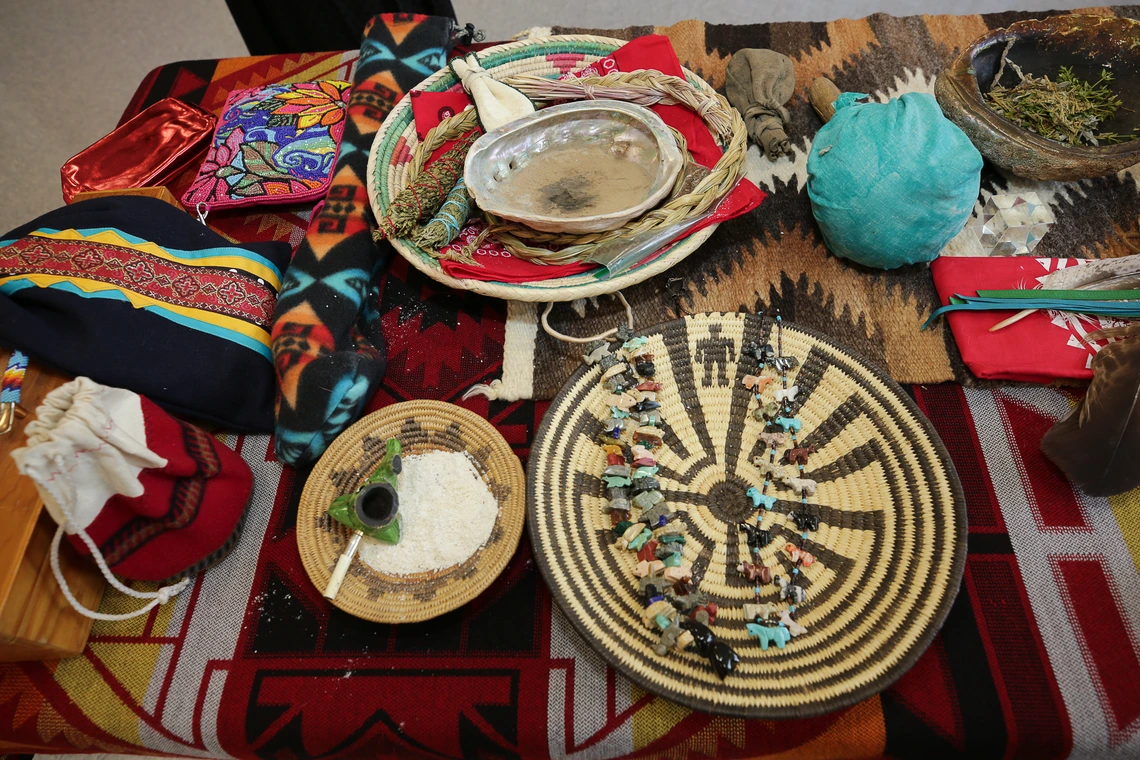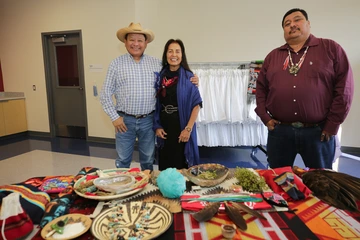Diversity, Equity and Inclusion in Action
The University of Arizona College of Veterinary Medicine is working to create a more diverse, equitable and inclusive future for veterinary medicine.

The University of Arizona College of Veterinary Medicine is working to create a more diverse, equitable and inclusive future for veterinary medicine. As a core part of its mission, the College of Veterinary Medicine instills foundational diversity, equity and inclusion (DEI) elements throughout all facets of our program. Every aspect of an individual is welcomed, and the DEI team facilitates a healthy community of support to try and meet a student’s needs at every level. While this type of inclusivity is vital in every career field, it is especially important in the field of veterinary medicine.
“We're a college that's not only looking at diversity in terms of numbers of diverse folks who are admitted and supported and graduate the program, but we're also thinking about what happens when they're here in terms of the support they receive through the academic and student services sides. It's more holistic. We’re thinking about what it means to be inclusive.”

Dr. Kat Martinez, Assistant Dean of Diversity, Equity and Inclusion, shared that DEI is more than just a department or ideal. Instead, DEI is a guiding mindset—one which permeates the College’s planning and decision-making processes. A holistic approach to diversity, equity and inclusion in student learning and affairs is key to making changes that make a significant difference in the career field. DEI works to educate staff and faculty about the wealth of experiences our students bring to the table and encourages an inclusive mindset to ensure room for everyone in our workspaces and classrooms. This intentional community-building cultivates an environment where all students can feel confident and supported at CVM.
The DEI team is particularly focused on treating students equitably from the very beginning of their educational journey. This starts with a holistic admissions process, including Multiple Mini Interviews (MMIs), a model designed to reduce unintended bias. Prior to starting classes, students attend an orientation focused on building community and acknowledging the various identities and stories students bring to CVM and their team-based learning (TBL) communities. Team-based learning groups are designed to provide individuals with the best opportunity to learn, build relationships, and develop professional skills. Students work together within their diverse teams to put active and reflective listening skills into action, making them better teammates and more effective veterinarians.
Student services at the College of Veterinary Medicine are additionally designed with students’ diverse experiences in mind. Doctoral candidates, many of whom are first-generation college students, come from a wide array of socioeconomic and educational backgrounds. At CVM, students’ backgrounds are celebrated. “[We’re] making sure students feel like they can be part of a community. . . and asking what it means to build community around diverse identities,” shared Dr. Martinez. “We're not just talking about race, ethnicity or gender; we're also talking about what it means to come from a rural community, an urban community, [or] a low socioeconomic background,” so DEI programming is structured to best support students where they are. For example, Lunch n’ Learn workshops, which offer insight into various student identities and backgrounds, are hosted for staff and faculty to help foster a community that learns from experiences different from their own. CVM’s mental health and wellness programs, too, support and identify those who may need more assistance. The DEI team works closely with mental health and wellness professionals to create an inclusive community of students, faculty and staff that values mental health and increases access to vital resources. Students who know they are supported in their mental health journey have the tools they need to transform the veterinary medical career field and make lasting changes in their health and the health of others.
Inclusion is built into the curriculum to help students become adaptive, culturally responsive learners. Each semester, students learn professional skills intended to help prepare them for working effectively with teams of all backgrounds. Career-ready veterinarians are equipped with both medical expertise and interpersonal know-how. “What we're doing over the six semesters is focused on developing skills for dialogue and partnership in and across differences, because even the clinician-client [interaction] is a difference in terms of their understanding and experience with the animal,” Dr. Teresa Graham Brett, Interim Senior Associate Dean of Student Affairs and Diversity, Equity and Inclusion, shared. “We're trying to create day-one-ready. . . clinicians who can partner with clients and the entire veterinary team to best meet the needs of patients by asking questions and being able to find common ground.” Students learn to view clients through an unfiltered lens and approach each interaction with an open mind. We want to instill a sense of compassion and accountability, creating an environment in which students, staff and faculty are encouraged to question their biases and build connections with groups of people with different lived experiences than their own.
Diversity, equity and inclusion are cornerstones of the College of Veterinary Medicine. Programs and curricula are crafted to support and include the entire student body throughout their veterinary educations. At CVM, students learn to build relationships, take accountability, and effect lasting changes in their communities. Upon entering the career field as day-one-ready veterinarians, graduates are prepared to become transformative leaders in their communities.
